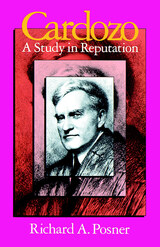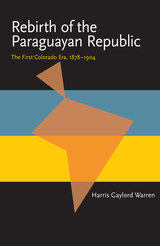
Benjamin Nathan Cardozo, unarguably one of the most outstanding judges of the twentieth century, is a man whose name remains prominent and whose contributions to the law remain relevant. This first complete biography of the longtime member and chief judge of the New York Court of Appeals and Justice of the Supreme Court of the United States during the turbulent years of the New Deal is a monumental achievement by a distinguished interpreter of constitutional law.
Cardozo was a progressive judge who understood and defended the proposition that judge-made law must be adapted to modern conditions. He also preached and practiced the doctrine that respect for precedent, history, and all branches of government limited what a judge could and should do. Thus, he did not modernize law at every opportunity.
In this book, Andrew Kaufman interweaves the personal and professional lives of this remarkable man to yield a multidimensional whole. Cardozo’s family ties to the Jewish community were a particularly significant factor in shaping his life, as was his father’s scandalous career—and ultimate disgrace—as a lawyer and judge. Kaufman concentrates, however, on Cardozo’s own distinguished career, including twenty-three years in private practice as a tough-minded and skillful lawyer and his classic lectures and writings on the judicial process. From this biography emerges an estimable figure holding to concepts of duty and responsibility, but a person not without frailties and prejudice.

"The present compact and unflaggingly interesting volume . . . is a full-bodied scholarly biography. . . .It is illuminating in itself, and will serve as a significant contribution."—Paul A. Freund, New York Times Book Review


"The sordid controversies of litigants," Benjamin Cardozo once said, are "the stuff from which great and shining truths will ultimately be shaped." As one of America's most influential judges, first on New York State's Court of Appeals and then on the United States Supreme Court, Cardozo (1870-1938) oversaw this transformation daily. How he arrived at his rulings, with their far-reaching consequences, becomes clear in this book, the first to explore the connections between Benjamin Cardozo's life and his jurisprudence.
An intensely private man whose friends destroyed much of his correspondence, Cardozo has long eluded scrutiny. But through extraordinary effort Richard Polenberg has uncovered letters, briefs, transcripts, and biographical details to give us a complex living picture of this man whose judicial opinions continue to affect us. Polenberg describes the shaping experiences of Cardozo's youth, among them the death of his mother when he was nine years old; religious training in the Spanish-Portuguese Synagogue; two years of private tutoring by Horatio Alger, Jr.; and his reaction to the scandal that prompted his father to resign from the New York Supreme Court. Then, in light of certain cases that were brought before the Court of Appeals, we see how Cardozo's rulings reflected a system of beliefs rooted in these early experiences; how, despite his famous detachment, Cardozo read evidence and precedents selectively and based his decisions regarding issues from rape and divorce to the insanity plea on his own views about morality, scholarship, and sexuality. Here too is the truth behind Cardozo's renowned liberalism, explored through his rulings on New Deal measures such as the Social Security Act and his more conservative decisions in cases involving conscientious objectors and the rights of criminal defendants.
The Benjamin Cardozo who emerges from these pages, a complicated and intriguing figure, points to a new understanding of the shaping of American law.
READERS
Browse our collection.
PUBLISHERS
See BiblioVault's publisher services.
STUDENT SERVICES
Files for college accessibility offices.
UChicago Accessibility Resources
home | accessibility | search | about | contact us
BiblioVault ® 2001 - 2024
The University of Chicago Press









